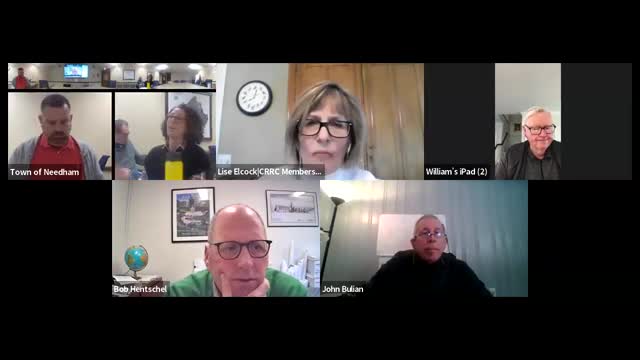Needham assessor outlines recertification, wave of abatement requests and deadlines for businesses
Get AI-powered insights, summaries, and transcripts
Subscribe
Summary
John Bullion of the Needham Board of Assessors told the Council of Economic Advisers that a five‑year recertification by an outside vendor produced valuation changes that have driven more than 350 abatement applications so far, that about 2,000 tax bills were mis‑mailed and that the town will begin weekly abatement reviews Feb. 24.
John Bullion, a member of the Needham Board of Assessors, told the Town of Needham’s Council of Economic Advisers on Feb. 14 that a statutorily required five‑year revaluation conducted by an outside vendor produced valuation changes that have driven a surge of abatement applications and created confusion for owners and tenants.
Bullion said the board’s “guiding principle” is to be “fair and equitable,” and explained the mechanics behind commercial valuations: the department relies on income‑and‑expense filings and a capitalization formula rather than only market comparables. “We take that information, and that information we go through,” he said, describing how leases, reported rent and capitalization rates feed the town’s commercial assessments.
The board has received “over 350 abatement applications” so far, Bullion said, up from 69 last year. He added that roughly 2,000 tax bills were sent to wrong addresses, creating an additional pool of property owners and businesses who have until April 8 to file for abatement. The assessors plan to start hearing abatement cases on Feb. 24 and will meet weekly “for the foreseeable future” to process submissions.
Why it matters: Town revenue does not rise in direct proportion to individual valuation changes. Bullion told the council that overall property tax revenue rose 4.3% district‑wide; the challenge for the assessor’s office is redistributing the existing levy among thousands of parcels so the slices of the local “pie” reflect current values.
How commercial assessments work: Bullion explained commercial valuations use the income‑and‑expense (INE) approach the Massachusetts Department of Revenue recommends. He said the town requires INE filings by March 1 for the prior calendar year and that historically only about 45% of businesses file. “The very first question I asked every commercial property owner…was, have you filed your INE?” he said. Bullion said many commercial owners had not filed INEs, and some properties had not been revalued for 10–20 years.
Bullion said the town uses a vendor, Tyler Technologies of Texas, to perform the recertification. He said the assessors have asked the vendor for background documentation about how commercial valuations were derived so the board can explain “the hows and the whys” to property owners during the abatement process.
Limits on enforcement and data access: Bullion said the town can compel INE filings but is limited by state law: the maximum administrative fine is $250. He described two paths the office is pursuing to improve compliance—asking the council for help to place a stronger enforcement mechanism on a town meeting warrant, and mapping average per‑square‑foot rental rates by business district so the office can apply standardized rates when INEs are missing.
Landlord, tenant gap: Council Chair Heidi (last name not specified in the transcript), raised a recurring concern: tax bills are sent to landowners but the economic impact often falls to lessees because many commercial leases pass property tax increases through to tenants. “The land owner is getting the tax bill, but it's the lessee who is feeling the impact of the tax bill,” she said, and noted tenants often lack access to the landlord’s INE or the lease terms needed to contest an assessment.
Appeals and next steps: Bullion said commercial abatement cases are more document‑intensive and that some owners will appeal to the Appellate Tax Board if unresolved. He said the board will request leases when INEs appear incomplete (for example, when percentage rent is omitted) and that abatement reviews will be handled on a case‑by‑case basis.
What the board asked for: Bullion said assessors have requested detailed valuation support from Tyler Technologies and will begin the abatement hearing schedule Feb. 24. He urged owners to file INEs and to supply leases and other requested documentation to support their cases.
Ending note: Bullion closed by saying the work has been a steep learning curve and that board members have been stepping into operations while the town is without a full‑time assessing director. “There's a tremendous amount of complexity to what we're what's before us on the board of assessors,” he said, and thanked the council for the opportunity to explain the process.
